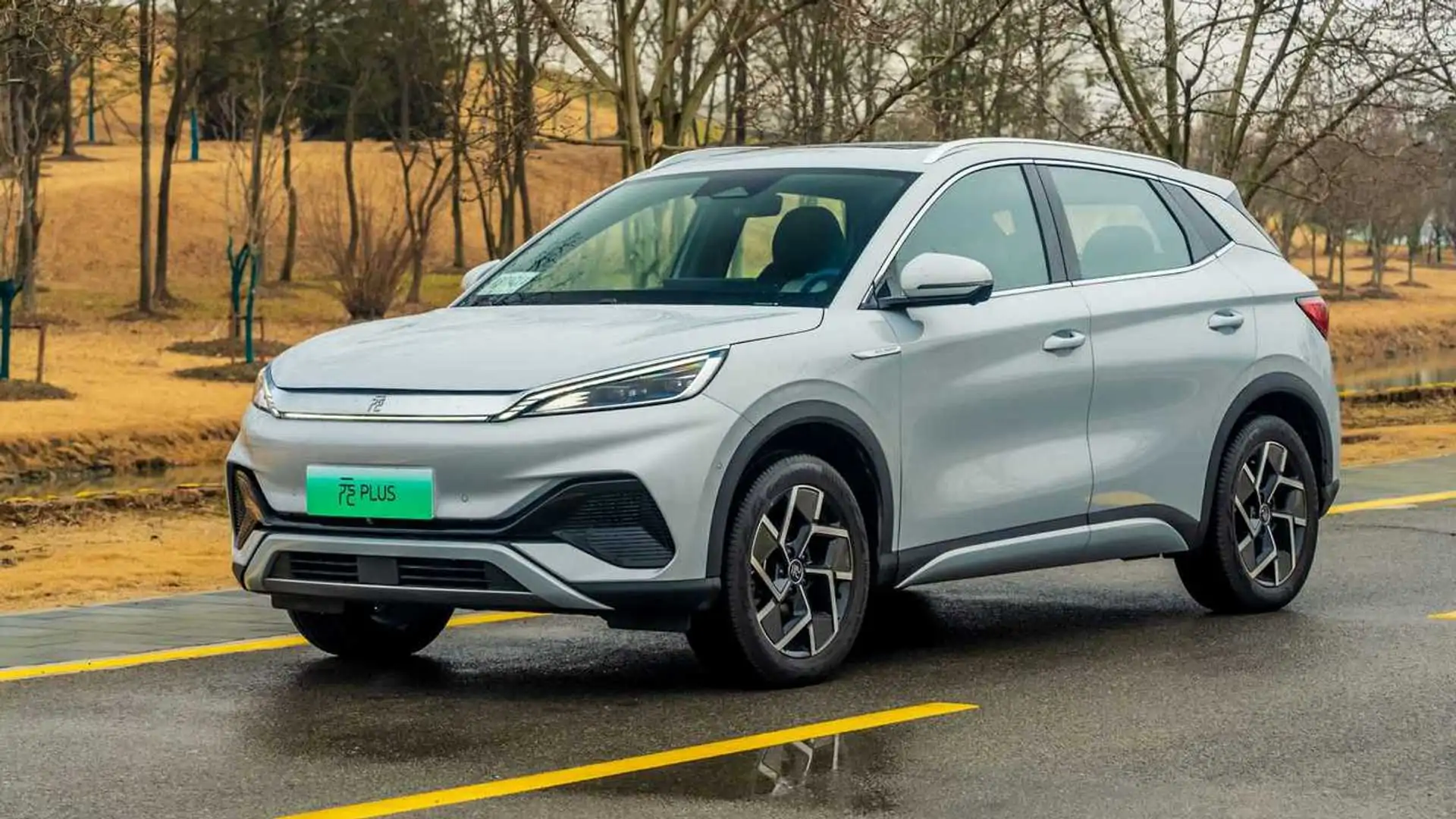It is a vehicle that inspires music and fitness.
The market for electric vehicles in China continues to grow at a faster rate than any other global market. Together with many legacy automakers’ local divisions, Tesla must compete with a growing number of decent EVs made by Chinese automakers. Build Your Dreams (BYD) is one of the most prominent players in this market. The brand’s latest zero-emissions crossover is the Yuan plus. It has been improving its game in all areas, particularly regarding equipment and onboard features.
The EV crossover appears to be yet another generic Chinese model with a bland design. The WheelsboyChe channel on Youtube has a new walkaround video for the Yuan Plus. They also shared a photo gallery with us. Although the exterior isn’t very interesting, you can still explore the interior and see the amazing features BYD installed at the factory.
The Yuan Plus is based on a design philosophy called the Dragon Face 3.0. This crossover is influenced by music and fitness. Although it may not make sense at first glance, many details inside the vehicle correspond to this philosophy. The air vents located below the rotating center screen are meant to look like dumbbells. You’ll find three strings-like cords on each door panel. Each one plays a different tone when pulled gently.

The most bizarre feature of the electric crossover is its built in karaoke. The vehicle comes with an under-arm microphone that allows you sign to your favorite songs via the vehicle’s stereo system. This is one of the most bizarre factory features we have ever seen in a car.
The Yuan Plus’ quirky interior is its only real technological highlight. It can accelerate from 0 to 60 miles per hour (or 100 km/h) in 7.3 seconds. This version has a single electric motor at the front that delivers 201 horsepower (150kilowatts) peak power. The battery pack can vary in capacity and the crossover can travel between 267 and 317 mi (430 to 510 km) according to China’s EV range protocol.